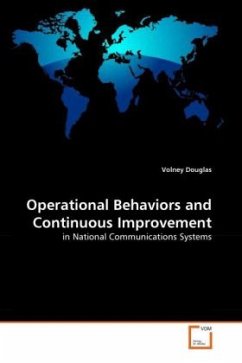National communications systems (NCS) are critical elements of a government's infrastructure. Limited improvements to the operational behaviors or non- functional requirements (NFR) of NCS have caused issues during national emergencies such as 9/11. NCS contractors play a vital role in the design and support of NCS, and this perspective provides valuable insights. There are three major purposes for this case study: (a) to add to the existing theoretical framework on the issues, (b) to define the scope of these concepts, and (c) to provide strategies for management. Four research questions focus on definition, scope, models, and strategies. The results defined 11 major relationships focused on cost, risk, schedule, communication, and quality perceptions. These results provide a framework for strategic system optimization based on collection and analysis of operational information. Strategies for optimizing NCS, based on these findings, can have a positive social impact by improving operational quality and reducing cost, schedule, and risk impacts, which allows a greater capability for NCS to save lives.
Bitte wählen Sie Ihr Anliegen aus.
Rechnungen
Retourenschein anfordern
Bestellstatus
Storno








